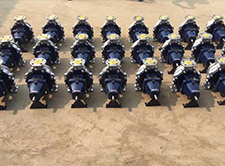Khmer
- Afrikaans
- Albanian
- Amharic
- Arabic
- Armenian
- Azerbaijani
- Basque
- Belarusian
- Bengali
- Bosnian
- Bulgarian
- Catalan
- Cebuano
- Corsican
- Croatian
- Czech
- Danish
- Dutch
- English
- Esperanto
- Estonian
- Finnish
- French
- Frisian
- Galician
- Georgian
- German
- Greek
- Gujarati
- Haitian Creole
- hausa
- hawaiian
- Hebrew
- Hindi
- Miao
- Hungarian
- Icelandic
- igbo
- Indonesian
- irish
- Italian
- Japanese
- Javanese
- Kannada
- kazakh
- Khmer
- Rwandese
- Korean
- Kurdish
- Kyrgyz
- Lao
- Latin
- Latvian
- Lithuanian
- Luxembourgish
- Macedonian
- Malgashi
- Malay
- Malayalam
- Maltese
- Maori
- Marathi
- Mongolian
- Myanmar
- Nepali
- Norwegian
- Norwegian
- Occitan
- Pashto
- Persian
- Polish
- Portuguese
- Punjabi
- Romanian
- Russian
- Samoan
- Scottish Gaelic
- Serbian
- Sesotho
- Shona
- Sindhi
- Sinhala
- Slovak
- Slovenian
- Somali
- Spanish
- Sundanese
- Swahili
- Swedish
- Tagalog
- Tajik
- Tamil
- Tatar
- Telugu
- Thai
- Turkish
- Turkmen
- Ukrainian
- Urdu
- Uighur
- Uzbek
- Vietnamese
- Welsh
- Bantu
- Yiddish
- Yoruba
- Zulu
Telephone: +86 13120555503
Email: frank@cypump.com
ធ្នូ . 10, 2024 06:25 Back to list
froth slurry pump factory
The Importance of Froth Slurry Pumps in Industrial Applications
In the realm of industrial processes, particularly in mining and mineral processing, the froth slurry pump has emerged as an indispensable tool. Designed to handle the transportation of abrasive and viscous materials, froth slurry pumps play a crucial role in the efficiency and effectiveness of operations across various sectors. This article explores the significance of froth slurry pumps, their working principles, and the considerations for selecting a factory or manufacturer for these pumps.
Understanding Froth Slurry Pumps
Froth slurry pumps are specifically engineered to manage the movement of frothy mixtures of solids, liquids, and gas. They are vital in operations that involve the processing of minerals, coal, pulp, and various other materials that constitute slurries. The unique design of these pumps allows them to operate effectively under challenging conditions.
Typically, slurry pumps operate by creating a flow of material through a series of impellers and housings. As the slurry enters the pump, the impeller imparts kinetic energy, converting it into pressure energy, which propels the slurry through the discharge. The design must accommodate high solid concentrations and manage the frothing that occurs due to the gas or air trapped in the mixture. This design consideration differentiates froth slurry pumps from standard pumps, making them apt for specialized applications.
Key Applications
Froth slurry pumps find extensive usage in several industries. In the mineral processing industry, they are essential for transporting frothy concentrates from flotation processes, where minerals are separated based on their surface properties. The coal industry also benefits from these pumps, as they often handle thick coal slurries for efficient transfer and processing.
Wastewater treatment plants utilize froth slurry pumps to manage the sludge produced during the treatment process. Furthermore, the paper and pulp industry relies on them to transport the fibrous slurry effectively. The ability of these pumps to handle abrasive and erosive materials makes them ideal for industries that require robust and reliable pumping solutions.
Choosing the Right Froth Slurry Pump Factory
froth slurry pump factory

Selecting a reputable froth slurry pump factory is crucial for ensuring the quality and reliability of the pumps
. Here are a few considerations that businesses should keep in mind1. Expertise and Experience Look for manufacturers with a proven track record in producing froth slurry pumps. Their experience often translates into better design, durability, and performance.
2. Customization Options Different applications may require specific pump designs. A good factory should offer customization options to cater to unique industrial needs.
3. Materials and Durability The harsh conditions under which froth slurry pumps operate necessitate durable materials that can withstand wear and tear. Ensure that the manufacturer uses high-quality materials in their production process.
4. Technical Support and Service A reliable manufacturer should provide comprehensive technical support and service options. This is essential for maintenance and troubleshooting, ensuring that operational downtime is minimized.
5. Innovation and Technology The industrial landscape is ever-evolving, with new technologies enhancing efficiency and performance. A factory that invests in research and development will likely offer pumps that incorporate the latest advancements.
Conclusion
Froth slurry pumps hold a pivotal role in various industrial applications, particularly within the mining and mineral processing industries. Their ability to handle challenging materials while maintaining efficiency positions them as critical components in production processes. By choosing a trustworthy froth slurry pump factory, businesses can ensure they are investing in quality equipment that will enhance operational performance and longevity. As industries continue to evolve, the need for advanced slurry pumping solutions will remain, making it essential to prioritize innovation and reliability in pump selection.
-
Horizontal Split Case Pump with GPT-4 Turbo | High Efficiency
NewsAug.01,2025
-
ISG Series Pipeline Pump - Chi Yuan Pumps | High Efficiency, Durable Design
NewsAug.01,2025
-
Advanced Flue Gas Desulfurization Pump with GPT-4 Turbo | Durable & Efficient
NewsJul.31,2025
-
ISG Series Vertical Pipeline Pump - Chi Yuan Pumps | Advanced Hydraulic Design&Durable Construction
NewsJul.31,2025
-
ISG Series Vertical Pipeline Pump - Chi Yuan Pumps | Energy Efficient & Low Noise
NewsJul.31,2025
-
pipeline pump - Chi Yuan Pumps Co., LTD.|High Efficiency&Low Noise
NewsJul.31,2025










